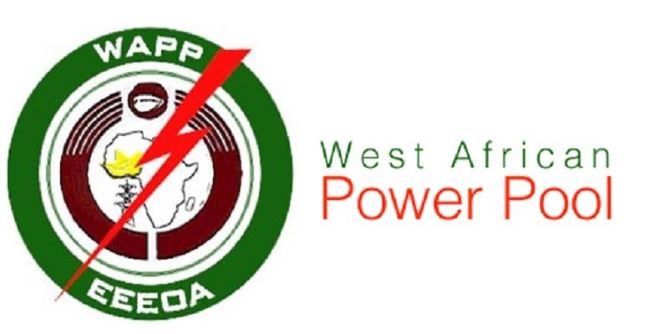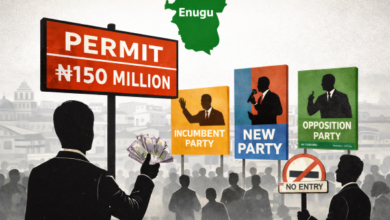WAPP collaboration critical for regional energy security
 The West African Power Pool (WAPP), has called for collaborative efforts across ECOWAS member states to pool resources together to advance a competitive regional electricity market to foster regional energy security.
The West African Power Pool (WAPP), has called for collaborative efforts across ECOWAS member states to pool resources together to advance a competitive regional electricity market to foster regional energy security.
Mrs Ndidi Mbah, the General Manager, Public Affairs, Transmission Company of Nigeria (TCN) said this in a statement in Abuja on Monday.
Mbah said that Mr Mamadou Coulibaly, the Minister of Mines, Petroleum, and Energy, Côte d’Ivoire made the call while presiding over the 19th Session of WAPP General Assembly in Abidjan over the weekend.
Lagos says it needs $33bn to fund energy generation
She said that the theme of the General Assembly was “Advancing the Regional Electricity Market: Overcoming Barriers and Building a Resilient Competitive Power Market’’.
According to the minister, access to electricity is a fundamental right and a vital necessity. We must work together, pooling our financial and natural resources to make it work,
Coulibaly said that cross-border cooperation was important describing energy as a resource that transcends barriers.
He commended WAPP for its vital role in promoting regional integration and reaffirmed Côte d’Ivoire’s commitment in advancing energy production and sharing to support the ECOWAS community’s growing electricity needs.
Mr. Sediko Douka, ECOWAS Commissioner for Infrastructure, Energy, and Digitalisation, provided an overview of on-going efforts to enhance the electricity sector.
Douka underscored the importance of robust institutional and regulatory frameworks, infrastructure development, and improved energy access.
He said that challenges such as the demand-supply deficit and low electricity access remain critical barriers to the sector’s progress.
Douka commended the progress made through the ECOWAS master plans for electricity generation and transmission and the successful interconnection of 14 out of 15 ECOWAS countries and the near-completion of network synchronisation.
“These efforts are pivotal in establishing a reliable and cost-effective energy supply,’’ he said.
According to him, the final approval for the WAPP Network Code and the Methodology for Regional Transmission Tariffs is expected by the end of 2024 thus laying the foundation for the second phase of the regional electricity market.
Mr Sule Abdulaziz, Chairman of WAPP and the Managing Director of TCN reaffirmed the commitment of member utilities to the organisation’s vision.
Abdulaziz stressed the critical role of WAPP in fostering regional energy security, highlighting the advancements in interconnection and synchronisation efforts, bringing the region closer to a fully integrated electricity market.
He listed on-going projects such as the development of additional cross-border transmission lines and initiatives aimed at enhancing the resilience of the electricity grid.
Abdulaziz said that the realisation of WAPP’s goals requires a united front among member states, utilities, and partners and called for continued collaboration to address emerging challenges and unlock the full potential of the regional electricity market.
He also announced the appointment of Mr Abdoulaye Dia from Senegal as the new Secretary-General, beginning a three-year renewable term, and also welcomed eight new power utility members to the General Assembly.
Earlier, Nazif Abdukadir, Acting Secretary-General, WAPP presented key achievements of the organisation, which included the operationalisation of the Regional Market Information and Coordination Centre (ICC).
Abdukadir said that the inauguration of the Côte d’Ivoire, Liberia, Sierra Leone, and Guinea (CLSG) and Guinea, Guinea-Bissau, Senegal, and The Gambia (OMVG) transmission lines now interconnect all 14 mainland ECOWAS countries.
He said that the successful pilot phase of the Regional Electricity Market and ongoing preparations for the second phase were on, adding that this project would integrate financial transactions and settlement systems.
Mrs Clara Winkler-Tomety, the Deputy Director of KfW in Abidjan and the representative of the Technical and Financial Partners of WAPP, acknowledged the region’s challenges in establishing a competitive electricity market.
KfW stands for Kreditanstalt für Wiederaufbau, which translates to “Credit Institute for Reconstruction” in English. It is a public development bank in Germany that was established in 1948 as part of the Marshall Plan after World War II.
She spoke on the importance of adopting environmentally sustainable strategies and commended WAPP for laying the foundation strong for regional energy integration.
Winkler-Tomety re- emphasised the collective commitment of WAPP’s Technical and Financial Partners to continue their partnership with the organisation.
Mbah said that earlier in the week, the General Assembly was preceded by meetings of the WAPP Organisational committees of experts from member countries and member utilities.
She said that Mr Kabiru Adamu, the Chairman of Strategic Planning and Environmental Committee chaired the session of the Joint Committees’ meeting.
Adamu is also the General Manager, System Planning and Development, TCN.












